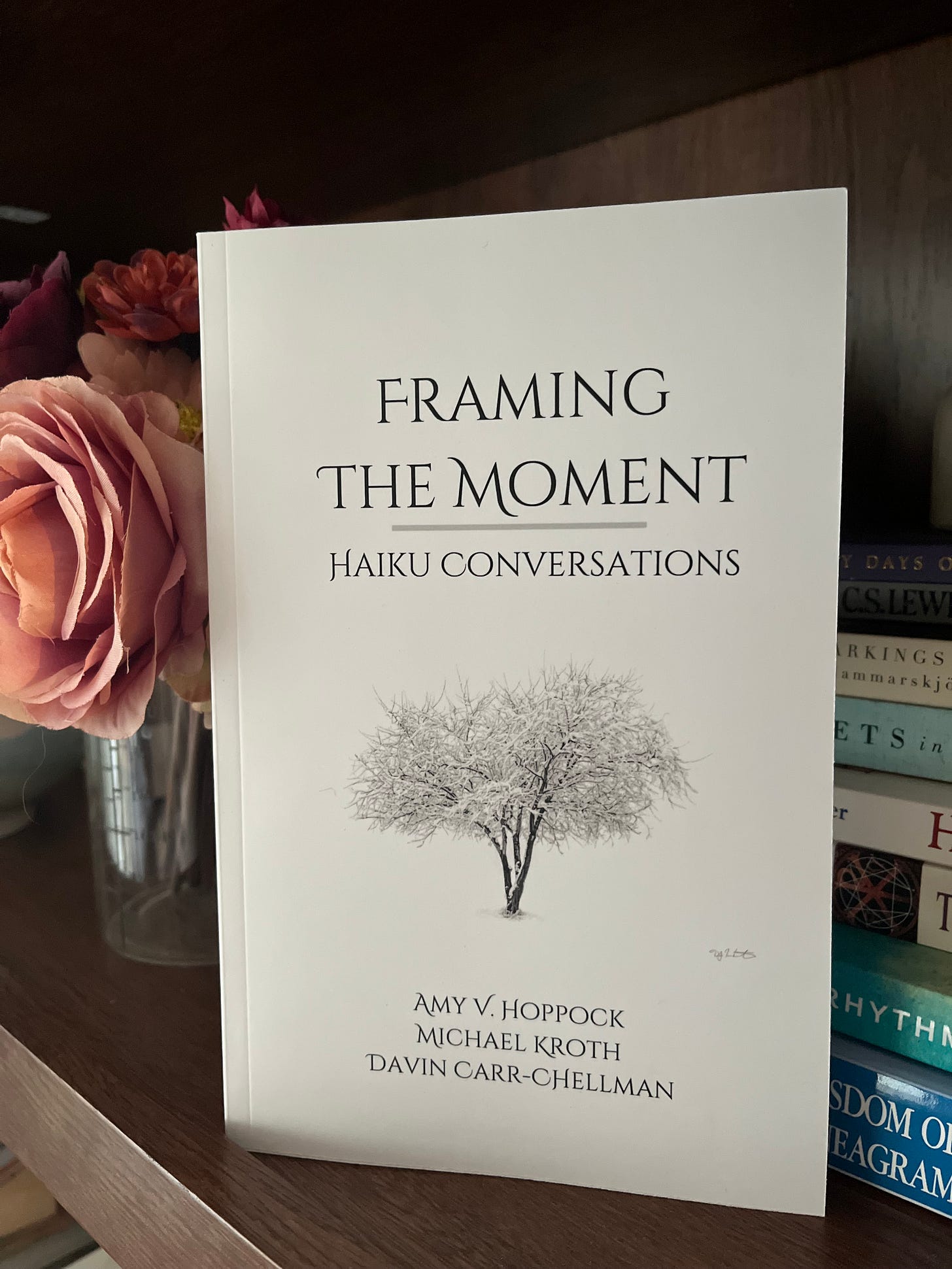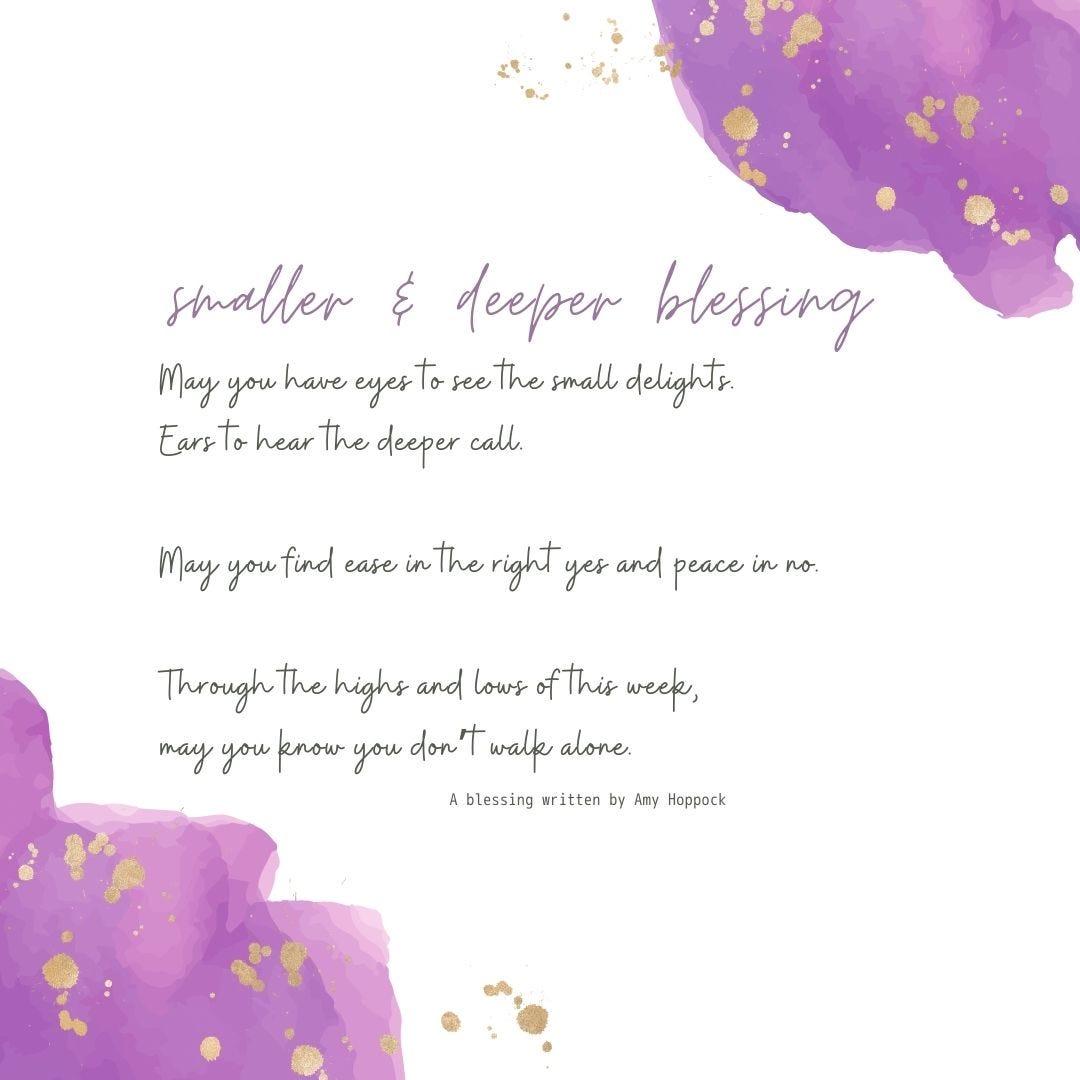Grace
What if we understood grace better?
How might an expanded understanding of the word grace expand and energize our common life together?
What if you expected grace and lived in grace daily?
Instead of setting an unattainable bar for success, what if you gave yourself the understanding and benefit of the doubt that you hand out to others?
What if you accepted that your best effort was indeed your best effort? What if you did the same for the people you disagree with most?
Finding a definition of grace that enfolds the power, potential, invitation, and beauty that I feel in the word turns out to be difficult.
There is the religious definition of "unmerited favor." That word "unmerited" feels rather loaded. Unmerited means not deserved. Deserving quickly becomes rather sticky. Who is deserving? Who is not? Who decides? Suddenly grace is drained of its power as inherent human worth and value are stripped away, and at best, a transactional concept is left in the void.
Grace also means moving with ease and beauty.
Grace is the blessing before a meal.
Grace as a verb is honoring someone with another's presence.
St. Terese of Lisieux said, "everything is grace," and George Bernanos said, "grace is everywhere." These understandings of grace are getting closer to a concept and ideal that seems beneficial and provocative. These ideas of grace move it from transactional to spacious and engaging. It becomes an idea that enlivens and dances, rather than something that judges worth and entitlement based on actions.
I often turn to Fredrick Buechner, a pastor, and writer, when looking for a better definition of words that seem to hold possibility and power, but seem to have lost their way. This is what he says of grace:
After centuries of handling and mishandling, most religious words have become so shopworn nobody's much interested anymore. Not so with grace, for some reason. Mysteriously, even derivatives like gracious and graceful still have some of the bloom left.
Grace is something you can never get but can only be given. There's no way to earn it or deserve it or bring it about any more than you can deserve the taste of raspberries and cream or earn good looks or bring about your own birth.
A good sleep is grace, and so are good dreams. Most tears are grace. The smell of rain is grace. Somebody loving you is grace. Loving somebody is grace. Have you ever tried to love somebody?
A crucial eccentricity of the Christian faith is the assertion that people are saved by grace. There's nothing you have to do. There's nothing you have to do. There's nothing you have to do.
The grace of God means something like: "Here is your life. You might never have been, but you are because the party wouldn't have been complete without you.
Here is the world. Beautiful and terrible things will happen. Don't be afraid. I am with you. Nothing can ever separate us. It's for you I created the universe. I love you."
There's only one catch. Like any other gift, the gift of grace can be yours only if you'll reach out and take it.
Maybe being able to reach out and take it is a gift too.
-Fredrick Buechner ~ initially published in Wishful Thinking and later in Beyond Words
So what if. . . with Buechner's grace in your heart you. . .
expected grace and found grace at every turn?
gave yourselves the room and grace that you hand out to others?
accepted that your best was indeed your best?
just kept doing the next right thing and didn't second guess your best actions and impulses?
gave yourselves and others the benefit of the doubt?
said "no" more often?
said "yes" to yourself better?
May you deeply experience the grace of good sleep, a brisk breeze, thoughtful words, and hot tea.
May you offer grace overflowing to yourself first, and those in your daily sphere in overflowing abundance.
May the words you offer be grace-filled and the words you receive be filled with the same.
Grace, Grace, Grace, and more Grace.

The third Sunday of Advent (today!) is known as Gaudete Sunday. Which means "Rejoice.” Some sources say this is a moment in the advent season for pausing.
As the pace of the Christmas season picks up this week maybe you can offer yourself the grace to pause and enjoy a walk outside, or a chapter in a good book, or a few minutes of quiet.
Last week I finished Cultish: The Language of Fanaticism by Amanda Montell. Every once in a while, I love a well-researched book about culture, and this book was that. It's well written, approachable, and super engaging. The author is a linguist, so her interest is, just as the title states, words and how words draw people to cults and cultish groups and keep people there. I'm glad I read it. Very thought-provoking.
I also finished Everything Happens for a Reason: And Others Lies I've Loved by Kate Bowler. I sometimes follow Kate on Instagram. (I follow and unfollow with reckless abandon on social media…) I like her approach to so many things. I was interested to read this book. I was a little disappointed. I wanted more; I wasn't sure if it was an autobiography of her diagnose of Stage 4 Cancer or if it was a collection of inspiring and thoughtful reflections. It if was an autobiography, it left me very confused; if it was thoughtful reflections, it mostly succeeded. All in all, I’m glad I read it. It wasn’t a five-star read, but a solid four!
Framing the Moment: Haiku Conversations
Our book is in the world! You can purchase a paperback copy or Kindle copy here!
It's a collection of haiku and reflections written between Sept 2020 and August 2021.
I was just flipping through the book, I have a lot of favorite haikus, but one favorite is from Davin:
The Conspiracy of the PoorBe poor in spiritGive only to give, not moreSeeds of perfection(Haiku 5)
Framing The Moment shares a haiku followed by my reflection, Davin's reflection (in this case it would be on his own haiku), and Michael's reflection. The reflections are short and show the dept and many ways that seventeen syllables can unfold and accordion open in profound ways. There are many months where rather uncanny synchronicity happens.
(If you purchase the book, we would love it if you leave a review! Reviews help little books find their ways in the world!)
I try and pay attention to words or phrases that stand out to me in my reading and listening. There is a spiritual practice called Florliledgium that collects short, interesting pieces {words that “sparkle” up} and put them together. This is kind of like that. Watching for things that sparkle. Gathering them and seeing how they work together and what message, mantra, or new idea might arise.)
A Practice:
Read slowly.
Notice if a word or phrase stands out to you.
How do the words make you feel?
Is there an invitation?
(I’m sharing in italics the lines that stand out to me in these passages. Maybe it’s the same, or maybe it’s different, there is much food for thought in each of these passages)
Theme: Grace
To be grateful is to recognize the Love of God in everything He has given us - and He has given us everything. Every breath we draw is a gift of His love, every moment of existence is a grace, for it brings with it immense graces from Him. Gratitude therefore takes nothing for granted, is never unresponsive, is constantly awakening to new wonder and to praise of the goodness of God. For the grateful person knows that God is good, not by hearsay but by experience. And that is what makes all the difference.
-Thomas Merton
You don't have to add anything in order to be happy; you've got to drop something.
-Anthony de Mello
All great spirituality teaches about letting go of what you don't need and who you are not. Then, when you can get little enough and naked enough and poor enough, you'll find that the little place where you really are is ironically more than enough and is all that you need. At that place, you will have nothing to prove to anybody and nothing to protect. That place is called freedom. It's the freedom of the children of God. Such people can connect with everybody. They don't feel the need to eliminate anybody . . .
-Richard Rohr
“All too often we bemoan our imperfections rather than embrace them as part of the process in which we are brought to God. Cherished emptiness gives God space in which to work. We are pure capacity for God. Let us not, then, take our littleness lightly. It is a wonderful grace. It is a gift to receive. At the same time, let us not get trapped in the confines of our littleness, but keep pushing on to claim our greatness. Remind yourself often, “I am pure capacity for God; I can be more.”
― Macrina Wiederkehr, A Tree Full of Angels: Seeing the Holy in the Ordinary
I live by the impossible… How dull the world would be if we limited ourselves to the possible.
-Madeleine L’Engle








💖💖💖💖💖